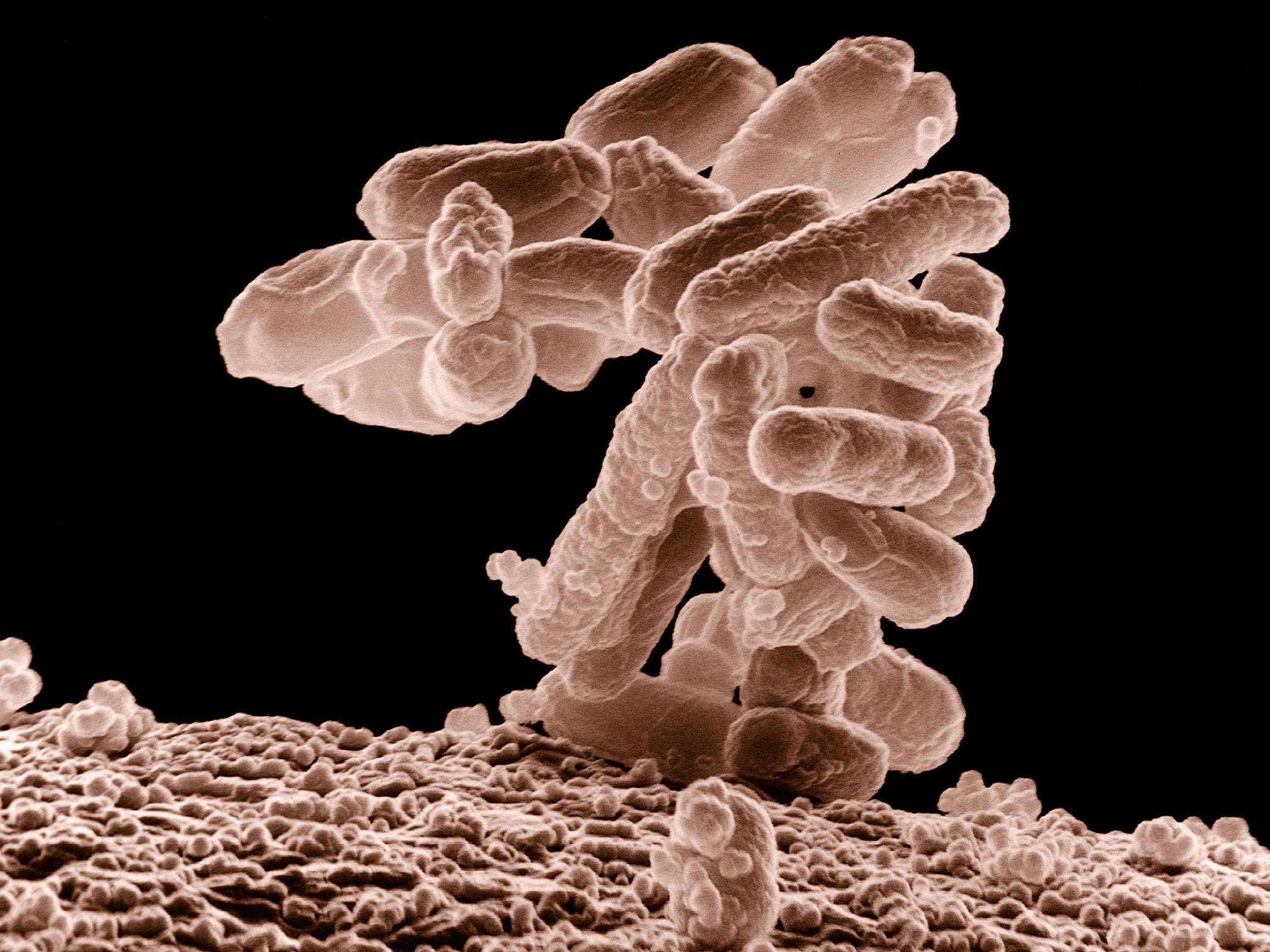Antibiotic resistance: Scientists find vulnerability that may hold key to killing superbugs
Study in major healthcare infection bug E. coli found it was evading destruction in ‘completely unexpected’ ways

Your support helps us to tell the story
From reproductive rights to climate change to Big Tech, The Independent is on the ground when the story is developing. Whether it's investigating the financials of Elon Musk's pro-Trump PAC or producing our latest documentary, 'The A Word', which shines a light on the American women fighting for reproductive rights, we know how important it is to parse out the facts from the messaging.
At such a critical moment in US history, we need reporters on the ground. Your donation allows us to keep sending journalists to speak to both sides of the story.
The Independent is trusted by Americans across the entire political spectrum. And unlike many other quality news outlets, we choose not to lock Americans out of our reporting and analysis with paywalls. We believe quality journalism should be available to everyone, paid for by those who can afford it.
Your support makes all the difference.Scientists have unearthed two “completely unexpected” methods used by drug-resistant superbugs to withstand antibiotic treatments, raising the potential for new cures in future.
A “decade-long” research project from a team at the University of Birmingham has shown how potentially lethal E. coli bacteria evades two important antibiotics used to treat sepsis and local infections.
This follows repeated warnings of a “post-antibiotic apocalypse” by the UK’s chief medical officer, Professor Dame Sally Davies if the drugs that underpin all modern medical treatments are rendered ineffective.
E. coli is a significant infection in hospitals where it can causes sepsis if it gets into the bloodstream, but it is also a common cause of food poisoning with around two-thirds of raw supermarket chicken carrying the bug.
The paper was published in Nature Communications and coincides with the start of the World Health Organisation’s (WHO) World Antibiotic Awareness Week today.
It outlines how the scientists involved in the study honed in on one gene segment in E. coli’s DNA, identifying the key role it plays in making the germ impervious to antibiotics seeking to destroy it.
“Our work identifies previously unrecognised pathways to antibiotic tolerance,” the paper says. “We suggest that the proteins involved are excellent drug targets and targeting these areas could make existing drugs more effective.”
Senior author Professor David Grainger said: “Although we have known about this gene for many decades, the ‘nuts and bolts’ of how it provides resistance to antibiotics has been difficult to pick apart.
“Our research identified previously unknown roles for this gene in controlling processes that provide drug resistance.”
Another member of the team, Dr Prateek Sharma, said: “The resistance mechanisms that we identified are found in many different species of bacteria, therefore our research could lead to the discovery of molecules that could be developed into new drugs that can treat bacterial infections.”
Drug resistance is becoming a global issue because of inappropriate use, or overuse, of antibiotics particularly treating infections not caused by bacteria, such as colds and flu – which are caused by viruses.
Public Health England last month launched its own campaign to warn patients not to ask for antibiotics when they are not needed, as patient pressure is a factor in over prescribing.
Adverts featuring singing antibiotics have been playing around the country to relay the message.
The overuse of antibiotics in farming is another major issue. Animal feed is laced with preventative doses to keep infections from spreading rapidly through livestock kept together in enclosed herds.
Join our commenting forum
Join thought-provoking conversations, follow other Independent readers and see their replies
Comments